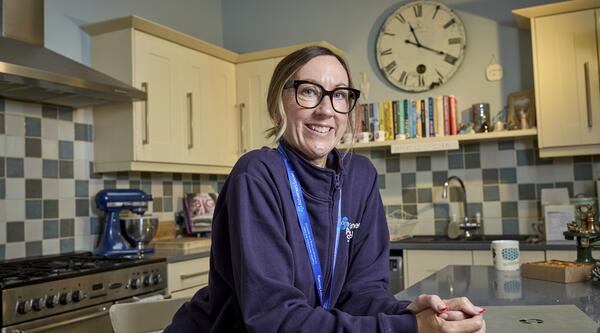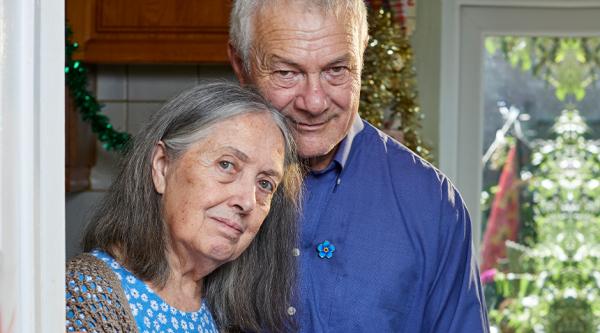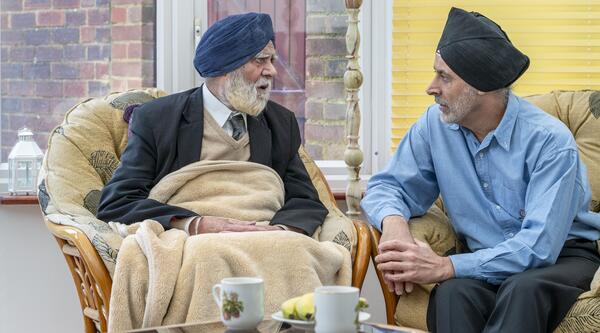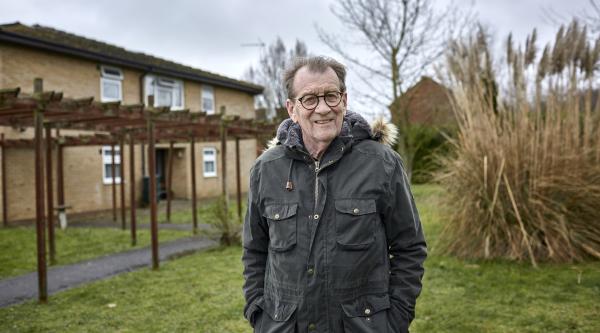‘Left in the dark’ - One in five people affected by dementia get no support: the true impact of dementia laid bare
One in five people affected by dementia have received no health care, social care or financial support, our new in-depth report has found.
Alzheimer’s Society calls for rapid improvements to dementia diagnosis and support as new evidence paints bleak picture:
Key findings
One in five people affected by dementia have received no health care, social care or financial support. Of those who received support, fewer than half were satisfied with it, with only 29% saying dementia-related health care was easy to access.
More than half believe this situation could be improved if increased support from professional carers trained in dementia was available.
Our lived experience survey
Published ahead of World Alzheimer’s Month, Alzheimer’s Society’s lived experience survey captures the voices of almost 3,500 people affected by dementia, made up of those living with the condition, unpaid carers, and loved ones.
The findings expose a system buckling under pressure and serious gaps in care, diagnosis, and public awareness – leaving too many families to cope alone.
You can read and download the full lived experience survey 2025 report here.
Professor Fiona Carragher, Chief Policy and Research Officer at Alzheimer’s Society, said:
“Almost a million people are living with dementia, yet its scale and the day-to-day realities often remain hidden."
Far too many people are going without the help they need – whether it’s support after a diagnosis, trained care professionals, or someone to turn to when things get hard.
“As the UK’s leading dementia charity, we are committed to giving a voice to those who feel unheard, left in the dark and struggling to cope. This report provides the evidence we hope will galvanise society to help solve the UK’s biggest health and care crisis.”
Exposing barriers to diagnosis
More than a third of people living with dementia in the UK don’t have an official diagnosis.
The survey, conducted by Walnut Unlimited, lays bare some of the barriers to a diagnosis as just one third report that their experience of the diagnosis process was positive.
Factors that made the diagnosis process difficult included:
- Long wait times (52%)
- Seeing multiple healthcare professionals (41%)
- Fewer than half were given information about the specific type of dementia they have.
It also highlights that people living with dementia are afraid of receiving a diagnosis (35%), apprehensive about speaking to healthcare professionals (31%), and worried about the impact of diagnosis on daily life (29%).
The report highlights that stigma could be preventing people from accessing support, as two in five people living with dementia feel ashamed or stigmatised. As a result, many have not sought a diagnosis because of concerns about what their families and friends will say if they are diagnosed with the condition.
Professor Carragher continued:
An early and accurate diagnosis is vital to enable people living with dementia to access the care, support and treatments they so desperately need.
"Those who have been able to access these treatments experienced benefits, but we simply aren’t diagnosing people early or accurately enough to see current and prospective treatments rolled out widely.”
“We are working with governments across the UK to ensure an ambitious diagnosis rate target is implemented, and we are pushing for all care staff to undertake dementia training.”
Understanding the carer experience
Experiences vary widely, but some groups face particular challenges. Among unpaid carers, 38% said they don’t feel respected by social care professionals – a figure that rises to 60% among carers from ethnically diverse backgrounds.
Seven in ten say that caring has negatively impacted their lives, with over a third reporting a decline in their mental health and a quarter feeling socially isolated. Despite this, many are unaware of the support they’re entitled to – including one in seven who said they didn’t know of any support at all.
What next?
Alzheimer’s Society will use the findings to inspire governments, local authorities, communities and the public to take action. The charity is also working to improve understanding of dementia amongst the public with our Dementia Friends programme, the biggest ever initiative to change people’s perceptions of the condition and reduce stigma.
Anne-Marie Duff, actor and Alzheimer’s Society supporter whose brother Eddie is living with early-onset Alzheimer’s disease, said:
It’s shocking just how many people still feel isolated and helpless, receiving little support from the social care system.
“I can absolutely relate, and I encourage anyone who feels the same to join the fight. We must make dementia a priority, for everyone affected by the condition – those living with it, and their families, friends and carers.”
Professor Carragher has stressed that Alzheimer’s Society is calling for rapid improvements to dementia diagnosis and support.
“For decades dementia has suffered from a lack of attention and investment. It’s been seen as too complex, too expensive, and too hopeless. We’re leading the way by providing the evidence and delivering support to those who need it, but it will take a society to beat dementia.
Alzheimer’s Society brings together carers, researchers, volunteers, fundraisers, politicians, Dementia Advisers, and support staff. We all have a role to play in ending the devastation dementia causes.”
For help and support, call Alzheimer’s Society’s Dementia Support Line on 0333 150 3456.
Join us
See how you can get involved and join the campaign to end the devastation caused by dementia.







